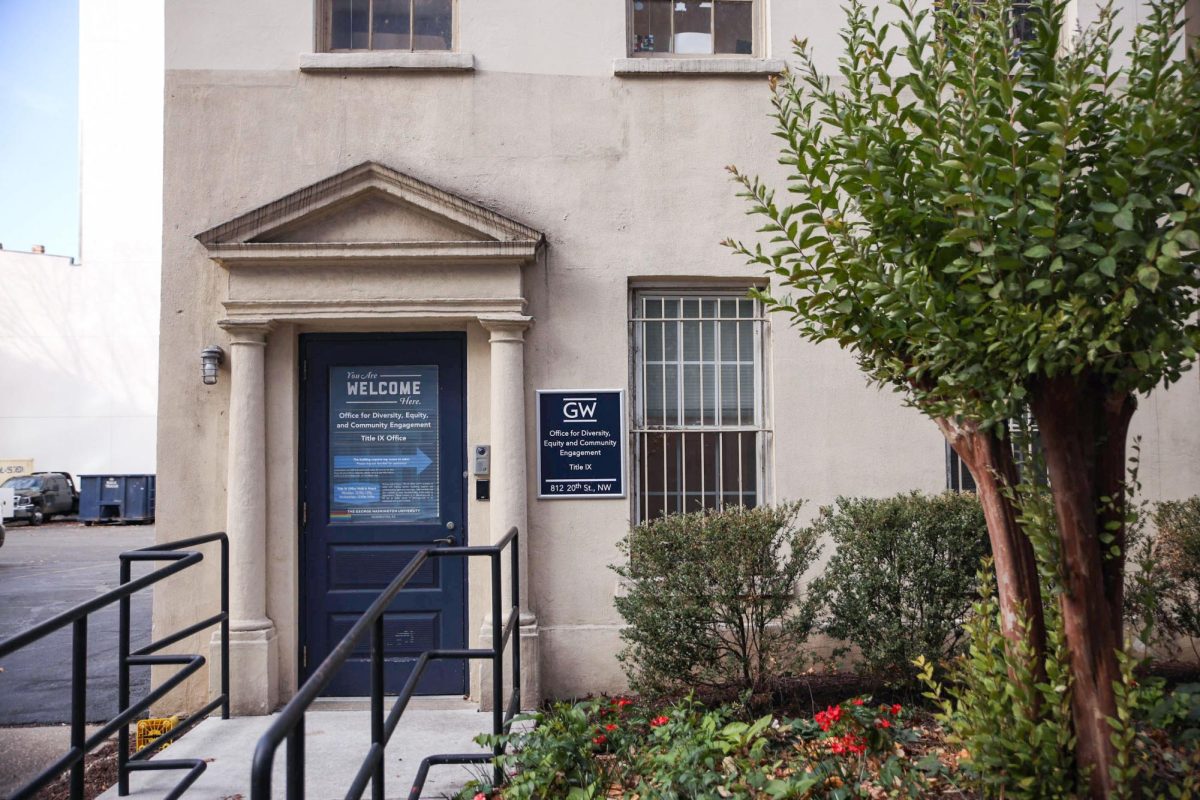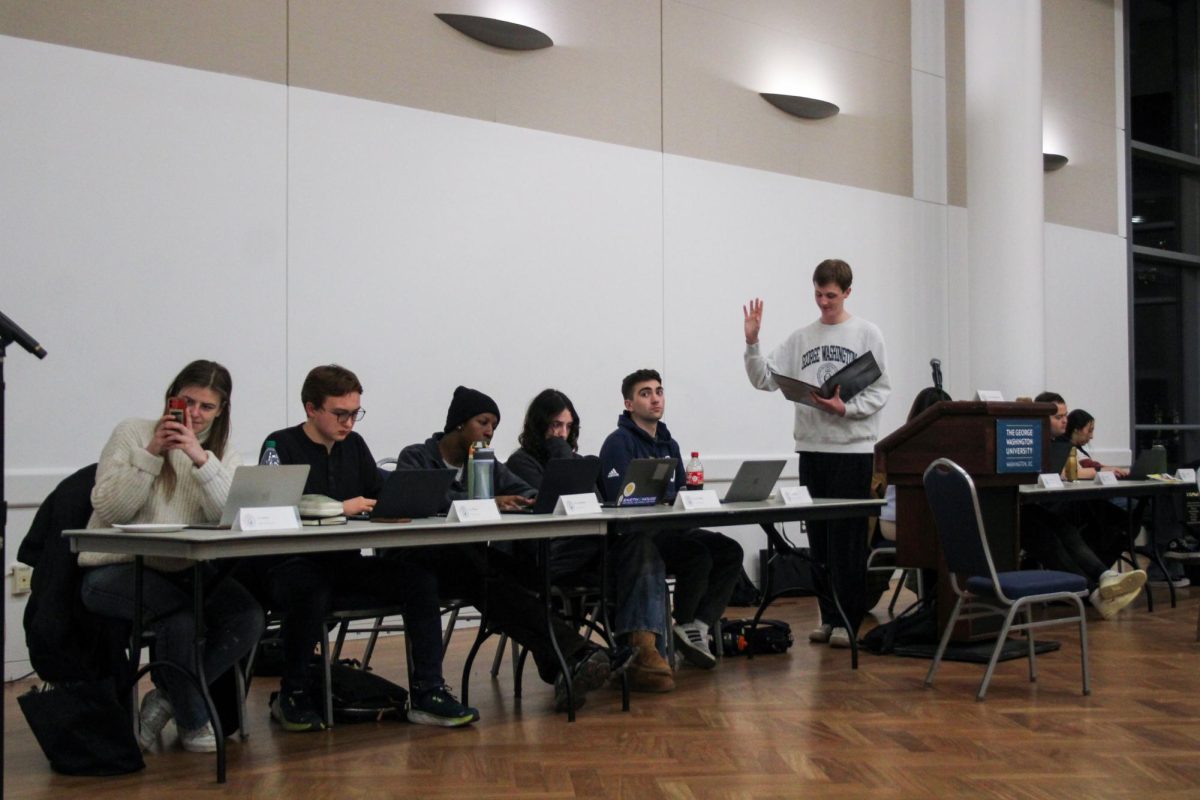The Student Association’s inaugural Black Senators’ Caucus met for the first time Sunday to expand membership and outline its plans for the semester.
The recently established caucus selected its vice chair, appointed a new member and discussed legislation it plans to introduce during senate meetings. Senators involved in the caucus said the group aims to increase black student representation in the organization and encourage other senators to formulate diversity and inclusion measures.
“As the only organization on campus that is chartered to represent the student body as a whole, we think that it’s always a constant goal to bring more black students into the community and represent marginalized communities,” said SA Sen. Brandon Hill, CCAS-U and the chair of the caucus.
Hill said caucus members approved Nia Lartey, the vice president for student activities, to serve in the group. SA Sen. Howard Brookins, U-at-Large, will serve as the group’s vice chair.
Hill said the caucus endorsed the Steps Forward Act, which encourages officials to address issues of diversity and inclusion after a racist Snapchat involving a sorority president surfaced last month. SA leaders will debate the proposed resolution at Monday’s senate meeting, he said.
The caucus formed from existing collaborations between Hill and SA Sen. Raina Hackett, CCAS-U, and SA Sen. Sparkle Mark, CCAS-U, who met to work on legislation and projects in the SA, Hill said. He said the three senators spearheaded a diversity and inclusion listening session for the black student community after the racist post emerged.
Hill said he hopes the group will meet about once per month to plan ways to increase collaboration between black senators, curate legislation and discuss issues that affect black students.
“We also wanted some type of body within the SA that was able to hold an event like that and have that open discussion,” he said. “We also wanted an ally-ship on the floor, where we all submit legislation and are able to fight for each other.”
Hill said members of the caucus will discuss topics like black student retention and will push the University to acknowledge diversity problems in the School of Medicine and Health Sciences through potential legislation.
White Coats for Black Lives, a student-run organization working to combat racial bias in medical education, published a report that assigned the medical school a B- grade on racial diversity, equity and inclusion.
He said he wants members of the caucus to serve as “liaisons” to black student groups to keep, develop and maintain relationships with the organizations and update students on the caucus.
Hackett, CCAS-U, and Mark, CCAS-U, who both co-sponsored the bill to create the caucus, did not return multiple requests for comment.
Brookins, the vice chair of the caucus, said the caucus will create a space for black senators that has not existed before, giving them space to discuss issues facing black students, like retention and representation in the SA.
“One of the problems with this past incident is that nobody really had something to turn to, to talk about these issues and talk about legislation,” he said. “There wasn’t a space to do that and I feel like after that, it was recognized that, ‘Yes, we need to meet and to discuss.’”
SA Sen. Quentin McHoes, ESIA-U and a member of the caucus, said he wants the caucus to work closely with administrators like Jordan West, the director for diversity and inclusion education, and the SA president and executive vice president to address “racial insensitivities and racism” at the University.
He said the group should talk with officials and SA members about disciplinary measures for Interfraternity Council and Panhellenic Association chapters following the racist post earlier this semester and about implementing diversity trainings for all students.
Officials suspended Panhel sororities last month from participating in informal fall recruitment and holding social events this semester after the post surfaced.
“It’s actually getting out, using the body, using the caucus as a means to create more conversations that actually result in change with the administration, with faculty and with other students,” McHoes said. “That’s the most important part for me, is that this body has the ability to be something, a real presence on campus.”
Tony Peeler, a freshman senator and a caucus member, said he hopes the caucus prompts more black students to join the SA.
“If you see others that are like you and have your same identity, I think you’re more apt to be involved and that’s what we want, we want more people to be involved,” he said. “We want more people to come to our meetings and express their ideas because without that, we can’t function as a student senate. We have to be able to hear from our community.”
Peeler said the caucus is “a gateway” for other senators to form their own caucuses within the SA Senate because the group will show students that they can create their own groups to address issues that affect their communities on campus.
“It opens the doors for more of them and also sets a precedent that says if you’re a minority, if you’re excluded from our community, that you have a place in SA,” he said. “You have not only a voice in the full senate, you have a voice in your caucus as well – people that are just like you, supporting you.”
Isha Trivedi and Yankun Zhao contributed reporting.








